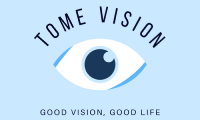Role of Opticians in Modern Eye Care
Introduction:
Good vision plays a vital role in our overall well-being. From enjoying the beautiful sights around us to performing daily activities such as driving, reading, and even working on a computer, our eyesight is crucial. Opticians, as professionals specializing in eye care, play a significant role in ensuring the health and clarity of our vision. In this article, we will delve into the valuable contributions of opticians in modern eye care.
Subheading 1: Conducting Comprehensive Eye Examinations
One of the primary roles of opticians is to conduct comprehensive eye examinations. These examinations are essential in assessing the overall health of the eyes, detecting potential disorders, and determining the need for corrective eyewear. Opticians utilize advanced tools and techniques to measure visual acuity, test for conditions like astigmatism, nearsightedness, or farsightedness, and examine the overall health of the eyes.
Some of the tasks performed by opticians during an eye examination include:
– Utilizing computerized equipment to measure refractive errors and evaluate the need for glasses or contact lenses.
– Checking the intraocular pressure to detect signs of glaucoma.
– Examining the retina and optic nerve to identify potential abnormalities or diseases such as macular degeneration or diabetic retinopathy.
Through these comprehensive eye examinations, opticians can help identify potential eye health issues early on, allowing for timely intervention and treatment.
Subheading 2: Dispensing and Fitting Eyewear
Another vital role of opticians is dispensing and fitting eyewear, including glasses and contact lenses. After determining the appropriate prescription from the eye examination, opticians play a crucial role in guiding patients in selecting the right type of eyewear to meet their needs.
They consider various factors such as lifestyle, occupation, visual demands, and personal preferences when recommending the most suitable eyewear options. Opticians have in-depth knowledge of lens materials, coatings, and frames, allowing them to provide valuable guidance to patients in selecting the best options for optimal vision and comfort.
In addition to selecting the appropriate eyewear, opticians also play a vital role in fitting them correctly. This involves ensuring the glasses sit on the bridge of the nose comfortably, adjusting the temples for a secure fit, and evaluating the position of lenses for accurate vision. For contact lenses, opticians educate patients on proper insertion, removal, and care techniques to maintain eye health and hygiene.
Bullet List:
– Educate patients about the importance of regular eye examinations and the need for proper eye care.
– Provide guidance regarding appropriate protective eyewear for specific activities, such as sports or working with hazardous materials.
– Offer advice and recommendations on the use of digital devices, including computer screens and smartphones, to reduce eye strain and protect against digital eye syndrome.
– Collaborate closely with optometrists and ophthalmologists to ensure comprehensive and coordinated eye care services.
– Stay updated with the latest advancements in eyewear technology, treatments, and ocular health to provide the highest quality care to patients.
Conclusion:
Opticians play an instrumental role in modern eye care. Through conducting comprehensive eye examinations, dispensing and fitting eyewear, and providing guidance on eye health and hygiene practices, they contribute to preserving and improving our vision. Their expertise and dedication ensure that individuals receive the necessary care and support for optimal visual acuity, leading to a better quality of life.
